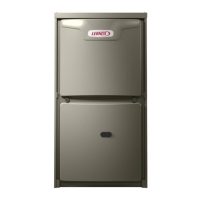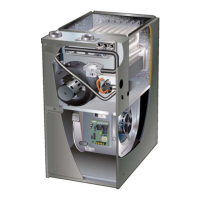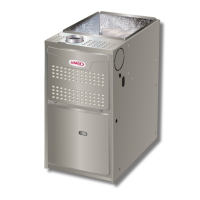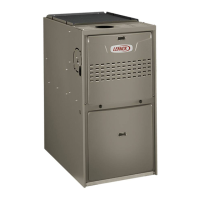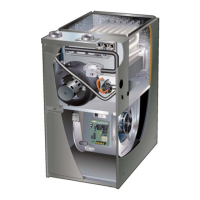Page 21
II-PLACEMENT AND INSTALLATION
Pipe & Fittings Specications
All pipe, ttings, primer and solvent cement must conform
with American National Standard Institute and the Ameri-
can Society for Testing and Materials (ANSI/ASTM) stan-
dards. The solvent shall be free owing and contain no
lumps, undissolved particles or any foreign matter that ad-
versely aects the joint strength or chemical resistance of
the cement. The cement shall show no gelation, stratica-
tion, or separation that cannot be removed by stirring. Re-
fer to TABLE 11 for approved piping and tting materials.
CAUTION
Solvent cements for plastic pipe are ammable liquids
and should be kept away from all sources of ignition.
Do not use excessive amounts of solvent cement when
making joints. Good ventilation should be maintained to
reduce re hazard and to minimize breathing of solvent
vapors. Avoid contact of cement with skin and eyes.
Low temperature solvent cement is recommended during
cooler weather. Metal or plastic strapping may be used for
vent pipe hangers. Uniformly apply a liberal coat of PVC
primer for PVC or use a clean dry cloth for ABS to clean
inside socket surface of tting and male end of pipe to
depth of tting socket.
Canadian Applications Only - Pipe, ttings, primer and
solvent cement used to vent (exhaust) this appliance must
be certied to ULC S636 and supplied by a single manu-
facturer as part of an approved vent (exhaust) system. In
addition, the rst three feet of vent pipe from the furnace
ue collar must be accessible for inspection.
IMPORTANT
Exhaust and intake connections are made of PVC.
Use PVC primer and solvent cement when using PVC
vent pipe. When using ABS vent pipe, use transitional
solvent cement to make connections to the PVC ttings
in the unit.
Use PVC primer and solvent cement or ABS solvent ce-
ment meeting ASTM specications, refer to TABLE 11.
As an alternate, use all purpose cement, to bond ABS,
PVC, or CPVC pipe when using ttings and pipe made of
the same materials. Use transition solvent cement when
bonding ABS to either PVC or CPVC.
TABLE 11
PIPING AND FITTINGS SPECIFICATIONS
Schedule 40 PVC (Pipe) D1785
Schedule 40 PVC (Cellular Core Pipe) F891
Schedule 40 PVC (Fittings) D2466
Schedule 40 CPVC (Pipe) F441
Schedule 40 CPVC (Fittings) F438
SDR-21 PVC or SDR-26 PVC (Pipe) D2241
SDR-21 CPVC or SDR-26 CPVC (Pipe) F442
Schedule 40 ABS Cellular Core DWV
(Pipe)
F628
Schedule 40 ABS (Pipe) D1527
Schedule 40 ABS (Fittings) D2468
ABS-DWV (Drain Waste & Vent) (Pipe &
Fittings)
D2661
PVC-DWV (Drain Waste & Vent) Pipe &
Fittings)
D2665
PRIMER & SOLVENT CEMENT
ASTM
SPECIFICATION
PVC & CPVC Primer F656
PVC Solvent Cement D2564
CPVC Solvent Cement F493
ABS Solvent Cement D2235
PVC/CPVC/ABS All Purpose Cement
For Fittings & Pipe of the same material
D2564, D2235,
F493
ABS to PVC or CPVC Transition Solvent
Cement
D3188
CANADA PIPE & FITTING & SOLVENT
CEMENT
MARKING
PVC & CPVC Pipe and Fittings
ULCS636
PVC & CPVC Solvent Cement
ABS to PVC or CPVC Transition
Cement
POLYPROPYLENE VENTING SYSTEM
PolyPro® by Duravent
InnoFlue® by Centrotherm
UL 1738 CERTIFIED GAS VENTING SYSTEM
IPEX System1738 Schedule 40 PVC
Pipes and Fittings
UL1738
IPEX System1738 PVC FGV Cement &
Primer
